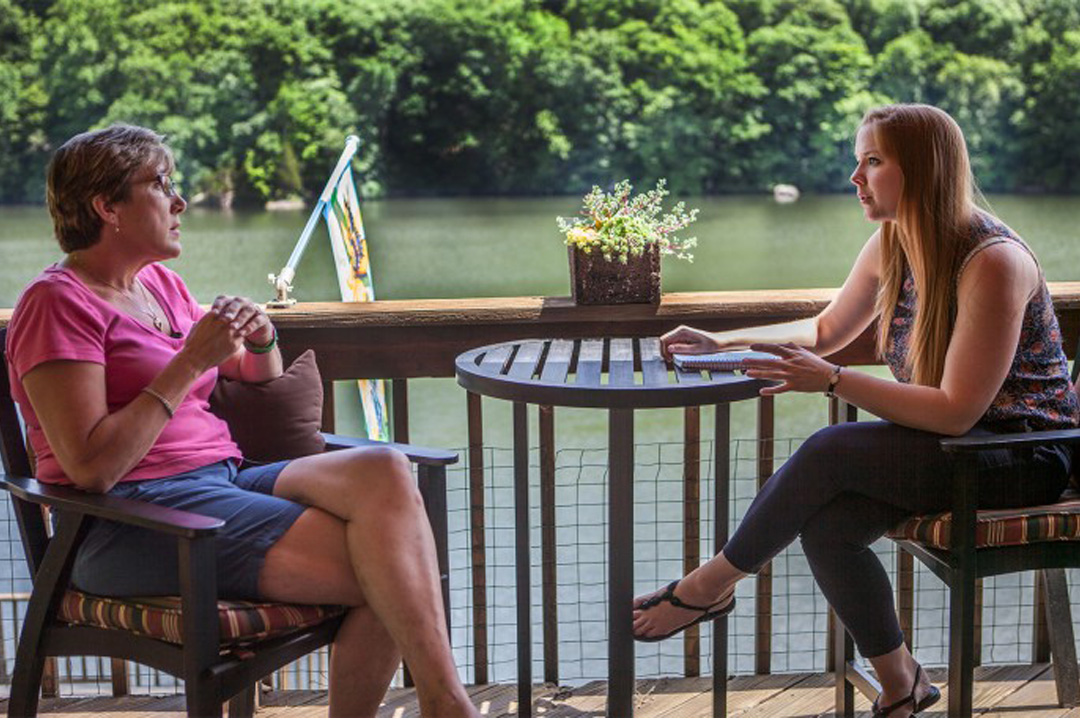When I first heard about News21 last fall, I didn’t know exactly what it was. From its name, it sounded like a local cable station, while its website resembled that of a journalism school, complete with lesson plans and weekly seminars.
Then one of my SMPA professors encouraged me to apply for the News21 fellowship, and I looked up News21’s most recent project. It was an investigation of the 2.6 million veterans who have returned from tours of Afghanistan and Iraq since 2001, and I was immediately impressed. The homepage was packed with compelling stories and visuals, which stood out with a clean, modern design. There was even a 25-minute documentary and a separate page full of interactive data visuals. I knew then that I wanted to be part of the next program.
Eight months after I logged into my first News21 seminar, my colleagues and I have completed our own project: an investigation of gun rights and regulations across the country. Together, we wrote more than two dozen stories and produced a staggering 30 videos – the most multimedia ever produced by News21. Our content was also published in more places than any previous year. My four stories were all published in the Washington Post, as well as investigative reporting outlets in a half-dozen states and regional newspapers including the Connecticut Post and the Arizona Republic. For an entire week after our project went live, I was awed by the national attention that our stories garnered.
We knew that covering gun laws and regulations would present challenges, as it is a highly reported and highly contentious issue. But because of the program’s focus on travel, we were able to report less-covered areas of the debate. We traveled to cities with the highest rates of gun deaths in the country, as well as areas where gun ownership is part of the fabric of that community. We traveled to 24 states, covering everything from street violence in the country’s murder capital of Flint, Michigan, to the rise of citizen militias in southern Mississippi that have a major role in law enforcement.
The gun debate has been important to me since December 14, 2012 – the day that my high school classmate took 28 lives, including his own, in my hometown of Newtown, Connecticut. As I watched funeral processions and news vans consume the streets in Newtown, I wanted answers. Can these kinds of shootings be prevented? If so, who should be responsible for leading that effort, and what can be done to protect people’s lives and their rights?
News21 enabled me to pursue answers to these questions, and ask many more along the way.
In many ways, my reporting was better because I was from Newtown. I had access that very few other journalists have experienced. Newtown is small, and nearly every one of my sources had recognized my last name when I first contacted them. They even saw the same “We Are Newtown” bumper sticker on my car.
But as my friend and local reporter Shannon Hicks said after 12/14, “it’s also harder when it’s your hometown.” When my neighbors or high school friends asked me about my plans for the summer, I had to be careful with how much I shared. Most people I know in Newtown don’t want to talk about the shooting. Those who do still talk about guns are usually the ones with the closest ties to what happened – those who lost a child or a parent. Providing details of my fellowship could easily provoke a bitter political debate, or trigger memories that many believe should be left in the past.
It wasn’t easy to interview fellow Newtowners and watch them break down on camera as they relive that day 18 months later. But I also believe that it’s important for people across the country to see the grief and confusion that still permeates my hometown.
My reporting couldn’t have been done without the help of my two stellar editors, Jacquee Petchel and Peter Bhatia, who took the same approach in our newsroom as they did when overseeing major investigative projects at some of the country’s best papers.
The Knight Foundation, one of the country’s most prominent journalism nonprofits, has described the program as a “teaching hospital” model, and I couldn’t agree more.
Under my editors’ direction, I researched, pitched stories, found sources, organized interviews, and wrote all my own stories. Our newsroom felt like any other professional newsroom I’ve ever been in – except that all 27 of us were under the age of 30. We helped each other, questioned each other, and shared our skill sets to create a final product of which we are all proud.
Sarah Ferris graduated with a BA in Journalism and Political Science in 2014. She is now a reporter for The Hill. You can read more about Sarah and her work on her website: https://sarahferris.contently.com/


